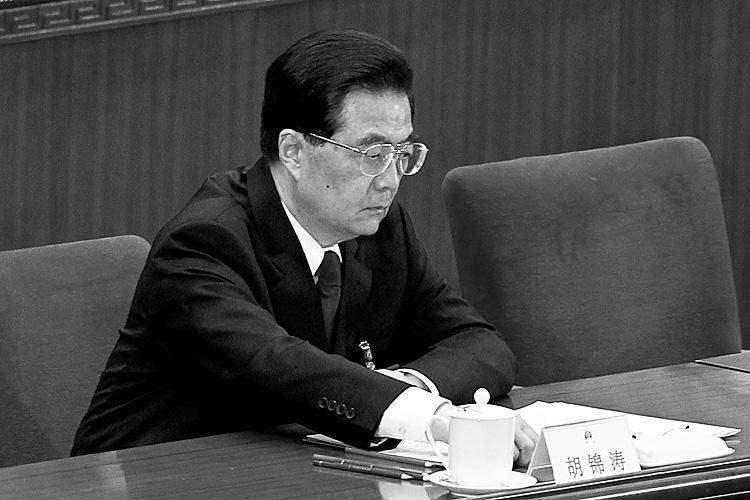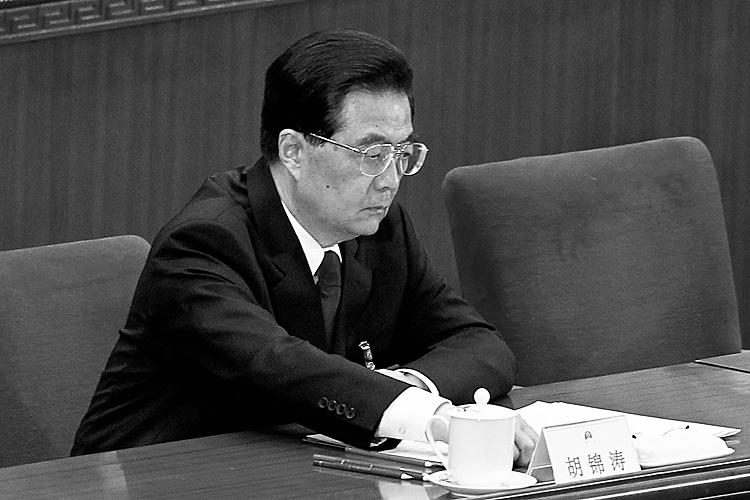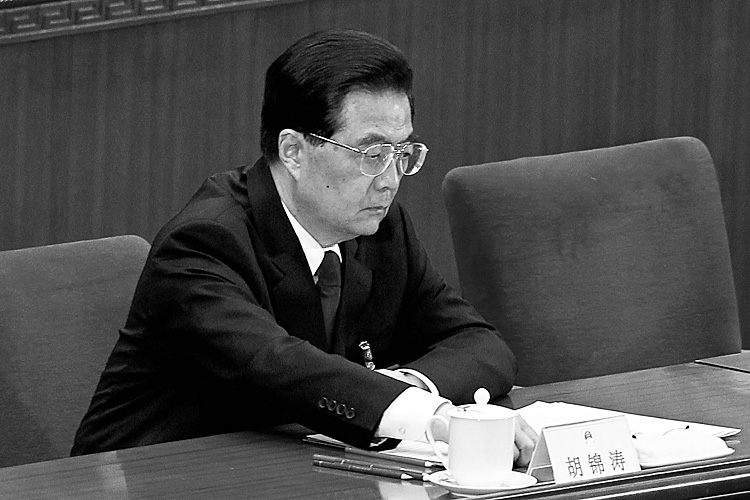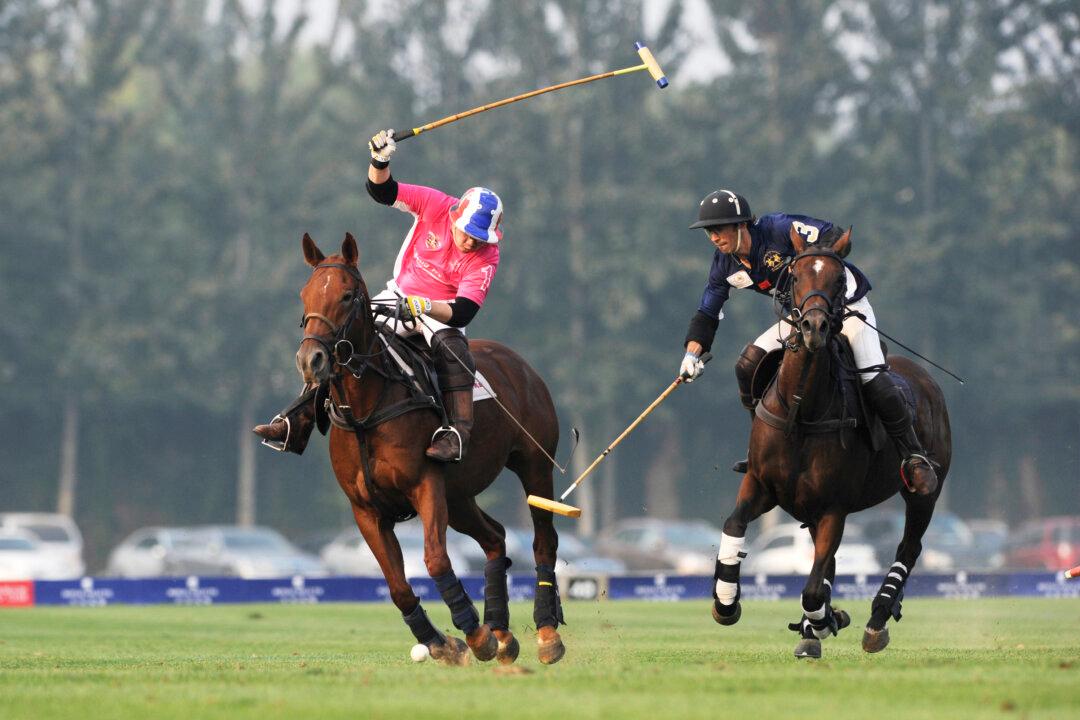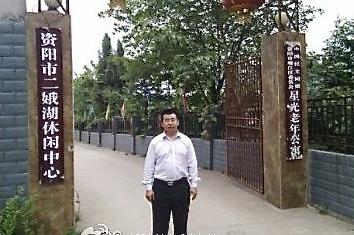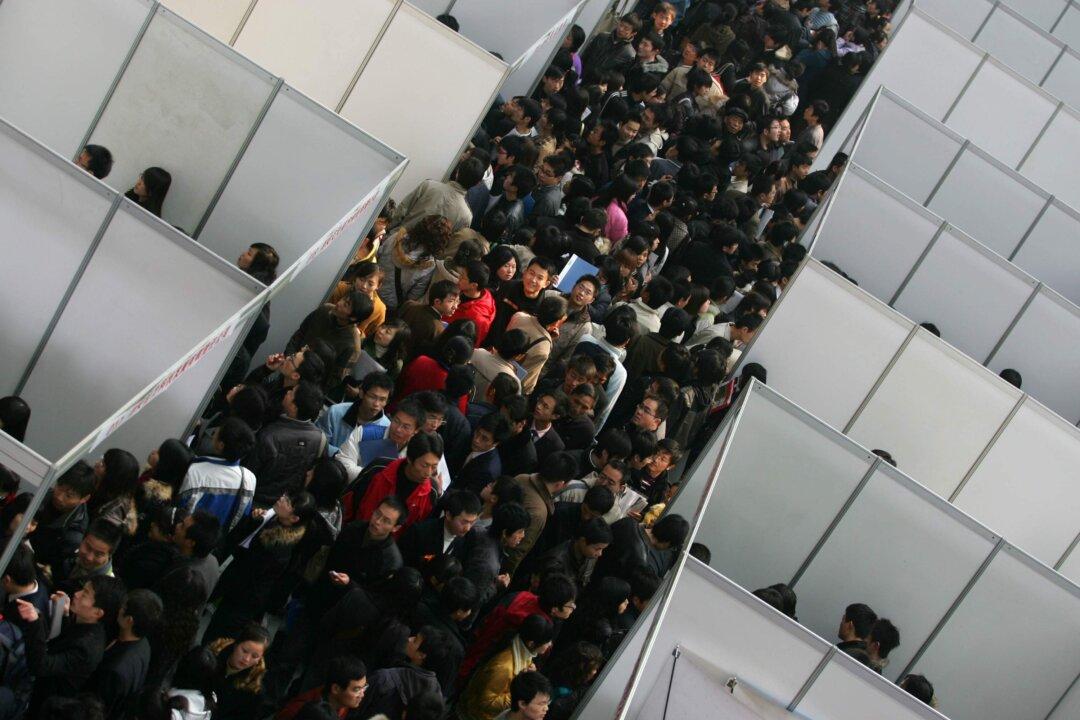In a letter to the Chinese central regime in early May, China’s top military bosses made a joint appeal for Party leader Hu Jintao to retain his post as chairman of the Central Military Commission after he steps down from his Party and state top leadership positions, according to Hong Kong based Cheng Ming Magazine’s June issue.
If approved, Hu will be following examples of his predecessors Deng Xiaoping and Jiang Zemin who both retained power over the military for two years after their 10-year tenure as state Party chairman was up.
Slow Start
But Hu has fought a harder and longer battle than his predecessors in gaining the military’s support, and he achieved success only in the final year of his ten-year tenure.
In 2002, at the Chinese Communist Party’s (CCP) 16th National Conference, when Hu should have officially been handed full power to run the country, Jiang Zeming’s military ally, Zhang Wannian, and 22 other generals surprised the Conference with a special motion for Jiang to retain his military post.
At that time Hu had little clout to stand against the military bosses. So, when Zhang Wannian shouted at Hu during the Conference and demanded he respond to the motion, Hu said in a low voice, “Since everyone agrees with the special motion, I have no objection either.”
In the next two years Hu, paramount leader of China, lived in Jiang’s and his faction’s shadow. Netizens often jokingly called him the emperor’s son. His name was always mentioned after Jiang’s in official news releases, and he always walked behind Jiang at all public occasions—in the strict world of Chinese communist propaganda, both were public demonstrations of his inferior status.
Hu’s awkward situation was reflected in his first official dialogue with then-U.S. Vice President Dick Cheney in 2002 just before Hu became the General Secretary of the Party. In his latest memoir, Cheney said he invited Hu to a one-on-one meeting. During the meeting, former Chinese Foreign Minister Li Zhaoxing buzzed through the door and sat between Cheney and Hu, refusing to leave when asked. Li, one of Jiang’s allies, had been sent to monitor Hu and report his comments back to Jiang.
As vice chairman of the Central Military Commission, Hu was authorized to commission only those at the major general level or lower. Jiang had the final say on commissioning the majority of higher-level officers even years after he stepped down from the chairman post.
Hu’s influence among the military remained low. It went so far as to some troops refusing to take Hu’s and Wen’s orders to join the quake relief after the 2008 Sichuan earthquake that killed 70,000 people.
No Peace
Hu’s submissive posture did not buy him tranquility. Jiang prepared a successor for Hu as soon as Hu took up his state leadership post, just as Deng Xiaoping had set up Hu as Jiang’s successor. Former Shanghai Mayor and Politburo member Chen Liangyu, a key member of Jiang’s Shanghai faction, was the heir Jiang selected.
Chen hardly bothered to hide his ambition and often publicly contradicted Hu. On many occasions Chen expressed his defiance of Hu and called Hu a frail scholar who could not shoulder his responsibilities. Chen also rejected Hu’s and Wen’s economic policies and publicly stated that they did not suit Shanghai.
Rumors, or leaks, even have it that Jiang planned to have Hu assassinated a year before the CCP’s 17th National Conference, possibly out of an eagerness to have his own man take over the country.
According to Hong Kong-based Trend Magazine, Hu paid an unpublicized visit to a navy base in Qingdao on China’s east coast. When reviewing the fleet from a guided missile destroyer on the Yellow Sea, two vessels suddenly fired at the destroyer, killing five solders. Hu escaped unharmed and hurriedly flew to the southeastern Yunnan Province where he stayed for a week before returning to Beijing, Trend said.
Hu soon retaliated. Only four months later, Chen was detained on corruption charges and later sentenced to 18 years in jail.
In August, two months after the failed assassination, the then navy commander, Zhang Dingfa, was discharged. When Zhang died in December of that year, except for a very brief announcement in a navy newspaper, no major media reported on his death.
Taking Control
Chinese political analysts see the apparent assassination attempt as a tipping point for Hu, who then took decisive action to strengthen his control over the military.
He started from his immediate territory, Beijing. In December 2006, Hu replaced both the commander and the political commissar (Party branch head) of the Beijing Garrison with officers promoted directly from local army units. The following year, Hu commissioned his trusted Fang Fenghui as head of the Beijing Military Command to which the garrison reports.
Later in 2007, Hu took the 17th Party National Conference as an opportunity to force out Jiang Zemin’s ally, You Xigui, who was head of the Central Security Bureau that is responsible for the security of senior leaders. You’s successor was the relatively neutral Cao Qing.
In the same year, Hu’s right-hand man, Ling Jihua, became chief of the CCP’s General Office and thus obtained the authority to dispatch the Central Security Bureau, which guards top Party leaders.
By then, Hu had completely taken control of Beijing’s military forces, which was the starting point of his eventual vengeance. Not only did it signal his solid position, but also helped in the power struggle against opposing Party members.
At the fourth plenary session of the CCP’s 17th National Conference in 2009, Fang Fenghui openly objected to the staffing plan outlined by the Jiang faction. Overwhelmed by Fang’s military control, the conference had to compromise and did not make any personnel decisions.
The following year, Fang was promoted to general, and Hu himself handed the commission certificate to Fang and 10 other new generals that he had approved.
Click www.ept.ms/ccp-crisis to read about the most recent developments in the ongoing crisis within the Chinese communist regime. In this special topic, we provide readers with the necessary context to understand the situation. Get the RSS feed. Get the new interactive Timeline of Events. Who are the Major Players? ![]()
The Epoch Times publishes in 35 countries and in 19 languages. Subscribe to our e-newsletter.
